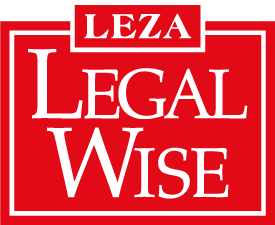Maintenance
What is maintenance?
Maintenance refers to the obligation of one person to contribute, in part or in whole, to the cost of living of another person.
- The legal duty or obligation to support a person is based on the relationship between the persons, the need to be supported and the ability to support.
- Maintenance is usually expressed in an amount of money per month.
Who is entitled to receive maintenance?
- All children are entitled to receive maintenance from their parents, irrespective of whether the child is born inside or outside the marriage of the parents;
- Spouses are primarily responsible for each other’s maintenance.
Where can an application for maintenance be made?
Unless a maintenance order has been given as an order from the High Court as part of the settlement of a divorce, an application for maintenance must be made against a Defendant/Respondent (person who must pay maintenance) at any Maintenance Court (Magistrates Court) in the district where the complainant (person who applies for maintenance) or the child, on whose behalf maintenance is claimed, resides or works.
Who can apply for maintenance on behalf of a child?
Child maintenance is claimed by any person who has guardianship or custody of a minor child. The person does not necessarily have to be the parent but must be able to show that the person legally responsible for the child’s maintenance is not performing the duty.
What expenses can be claimed for in respect of a child?
Total maintenance costs for a child must cover all the child’s reasonable needs for a proper living and upbringing. Maintenance will include:
- Cost of the daily upkeep of the child;
- housing, water and electricity;
- food, clothing and toiletries;
- transport;
- childcare services
- medical expenses (such as prescription medicine and treatment by a doctor, dentist, psychologist or psychiatrist);
- Education
What should a person take to court when applying for maintenance?
- The applicant needs to bring evidence of the expenses and how the money they seek is to be spent.
- Identity document of the complainant.
- Complainant’s contact details, such as telephone numbers and home and work addresses.
- If maintenance for a child is claimed, the birth certificate of that child.
- If maintenance for the spouse is claimed, the marriage certificate or divorce order where maintenance order was granted.
- A full list of expenses and any proof of same, such as receipts.
- The complainant’s pay slip and proof of any other income.
- As much detail as possible regarding the defendant, such as telephone numbers, home and work addresses, list of known income and expenses, and so on.
What happens after the application has been made?
- The respondent needs to be served with the application which will have the date of hearing sought by the applicant.
- The applicant must then draft an affidavit as proof of service to the respondent and file it at court before the date of the hearing.
- The Magistrate will hear from both parties and reach a decision as to the maintenance to be provided monthly. The court will also give directions as to where the monies are to be paid, in most cases the money is paid into the applicant’s bank account.
How can a maintenance order be enforced?
If the defendant fails to make a payment of maintenance in accordance with a maintenance order, the following remedy will be available to the complainant:
- The complaint can report the matter to the nearest police station as lack of paying maintenance is a criminal offence and is liable to imprisonment for a term of up to 1 year.
Until when must a child be maintained?
A maintenance order made in favour of a child ceases if and when:
- the child dies;
- the child attains the age of 18 years, but if the child is attending an educational institution for the purpose of acquiring a qualification which would enable him or her to maintain himself or herself, the maintenance order does not terminate until the child attains the age of 21 years or is self-sufficient.
GLOSSARY
Child: means a person below the age of 18 years.
Parent: the biological father or mother of a child who has full or limited parental rights and responsibilities over his/her child.
Spouse: persons married in terms of a civil marriage, customary marriage or religious marriage.
Guardian: both husband and wife are guardians of a child born from the marriage; the mother of a child born out of wedlock is the guardian. Guardianship includes safeguarding the child’s property or property interests; representing the child in legal matters; and consenting to marriage, etc.
Beneficiary: any person for whose benefit a maintenance order may, by law, be made or has been made.
Caregiver: a person other than a parent or guardian who has the right to care for a child. Care is the right of that person to have a child reside primarily with him/her and to control or supervise the daily life of that child.
Complainant: a beneficiary; a parent or other legal custodian or primary caretaker of a beneficiary; or any other person who has an interest in the well-being of the beneficiary, including but not limited to a relative, social worker, health care provider, teacher, traditional leader, religious leader or an employer.
Defendant: any person against whom a maintenance order may, by law, be made or has been made.
Maintenance Court: a special court dealing with matters relating to maintenance. Every Magistrate’s Court shall be a Maintenance Court.
How can LegalWise assist you?
Should you require an explanation of your rights on this topic, please contact your nearest LegalWise Branch, call, e-mail or WhatsApp us. For more information about our membership options visit our legal services page or visit our join now page.
